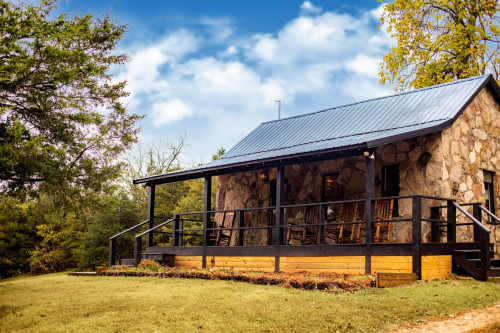






Retreat at Sky Ridge
Treatment Focus
This center treats substance use disorders and co-occurring mental health conditions. Your treatment plan addresses each condition at once with personalized, compassionate care for comprehensive healing.
Primary Level of Care
Offering intensive care with 24/7 monitoring, residential treatment is typically 30 days and can cover multiple levels of care. Length can range from 14 to 90 days typically.
Claimed
Recovery.com has connected directly with this treatment provider to validate the information in their profile.
Treatment Focus
This center treats substance use disorders and co-occurring mental health conditions. Your treatment plan addresses each condition at once with personalized, compassionate care for comprehensive healing.
Primary Level of Care
Offering intensive care with 24/7 monitoring, residential treatment is typically 30 days and can cover multiple levels of care. Length can range from 14 to 90 days typically.
Private Pay
You pay directly for treatment out of pocket. This approach can offer enhanced privacy and flexibility, without involving insurance. Exact costs vary based on program and length of stay. Contact the center for specific details.
Retreat at Sky Ridge
Retreat at Sky Ridge
About Retreat at Sky Ridge
Retreat at Sky Ridge is a rehabilitation retreat in the mountains that treats men and women who have substance use disorders and co-occurring mental health disorders. Retreat at Sky Ridge uses evidence-based treatment methods mixed with a holistic and wellness approach to recovery. When the client arrives, each one will be evaluated to understand what their needs are. Retreat at Sky Ridge’s facility provides their clients with a private, medically monitored drug and alcohol detox and inpatient rehab. They have a relapse track for individuals who have been unable to attain long-term sobriety. They also have intervention support, telehealth services, aftercare, and sober living available to clients. Retreat at Sky Ridge has programs that last 30, 45, 60, and 90 days, and the average stay is 30-45 days. Upon admission, clients will have a full physical, emotional, and psychological evaluation that will help develop their personalized treatment plan. Clients are introduced to addiction education lectures that help them understand addiction and the chemical impact alcohol and drugs have on the body and mind. Retreat at Sky Ridge uses many different therapies to treat clients, including cognitive behavioral therapy (CBT), dialectical behavior therapy (DBT), trauma focused therapy, relapse prevention, internal family system (IFS), and motivational interviewing. Retreat at Sky Ridge provides clients with 24-hour physician availability and 24-hour primary nursing care and observation. Retreat at Sky Ridge is a private pay facility with an option to seek reimbursement from insurance. They are out-of-network with all insurance companies and reimbursement depends on the client's out of network coverage.
Retreat at Sky Ridge is a beautiful property located on 130 acres featuring natural springs, creeks, woodland, and 2 spring fed fishing ponds. The tranquil location assists clients to be able to relax as well as support their treatment. Retreat at Sky Ridge was previously a private resort, and all the cabins and pavilions throughout the property were newly renovated in the fall of 2020. Retreat at Sky Ridge can accommodate a maximum of 12 clients at one time with shared accommodations. Clients stay in the cabins on property and have access to walking trails. During their excursions, clients will encounter bubbling creeks, wildlife, and a lush vibrant forest.
Center Overview
Treatment Focus
This center treats substance use disorders and co-occurring mental health conditions. Your treatment plan addresses each condition at once with personalized, compassionate care for comprehensive healing.
Cash Pay Rates
Estimated Cash Pay Rate
Center pricing can vary based on program and length of stay. Contact the center for more information. Recovery.com strives for price transparency so you can make an informed decision.
Levels of Care






Your Care Options
Specializations
Co-Occurring Disorders
A person with multiple mental health diagnoses, such as addiction and depression, has co-occurring disorders also called dual diagnosis.
Who We Treat
Approaches
Evidence-Based
A combination of scientifically rooted therapies and treatments make up evidence-based care, defined by their measured and proven results.
Holistic
A non-medicinal, wellness-focused approach that aims to align the mind, body, and spirit for deep and lasting healing.
Individual Treatment
Individual care meets the needs of each patient, using personalized treatment to provide them the most relevant care and greatest chance of success.
Non 12 Step
Non-12-Step philosophies veer from the spiritual focus of the 12-Steps and instead treat the disease of addiction with holistic or secular modalities.
Therapies
1-on-1 Counseling
Patient and therapist meet 1-on-1 to work through difficult emotions and behavioral challenges in a personal, private setting.
Motivational Interviewing and Enhancement Therapy (MET)
This approach is based on idea that motivation to change comes from within. Providers use a conversational framework that may help you commit to recovery.
Conditions We Treat
Personality Disorders
Personality disorders destabilize the way a person thinks, feels, and behaves. If untreated, they can undermine relationships and lead to severe distress.
Depression
Symptoms of depression may include fatigue, a sense of numbness, and loss of interest in activities. This condition can range from mild to severe.
Post Traumatic Stress Disorder
PTSD is a long-term mental health issue caused by a disturbing event or events. Symptoms include anxiety, dissociation, flashbacks, and intrusive thoughts.
Trauma
Some traumatic events are so disturbing that they cause long-term mental health problems. Those ongoing issues can also be referred to as "trauma."
Substances We Treat
Alcohol
Using alcohol as a coping mechanism, or drinking excessively throughout the week, signals an alcohol use disorder.
Benzodiazepines
Benzodiazepines are prescribed to treat anxiety and sleep issues. They are highly habit forming, and their abuse can cause mood changes and poor judgement.
Chronic Relapse
Consistent relapse occurs repeatedly, after partial recovery from addiction. This condition requires long-term treatment.
Co-Occurring Disorders
A person with multiple mental health diagnoses, such as addiction and depression, has co-occurring disorders also called dual diagnosis.
Cocaine
Cocaine is a stimulant with euphoric effects. Agitation, muscle ticks, psychosis, and heart issues are common symptoms of cocaine abuse.
Drug Addiction
Drug addiction is the excessive and repetitive use of substances, despite harmful consequences to a person's life, health, and relationships.
Ecstasy
Ecstasy is a stimulant that causes intense euphoria and heightened awareness. Abuse of this drug can trigger depression, insomnia, and memory problems.
Heroin
Heroin is a highly addictive and illegal opioid. It can cause insomnia, collapsed veins, heart issues, and additional mental health issues.





